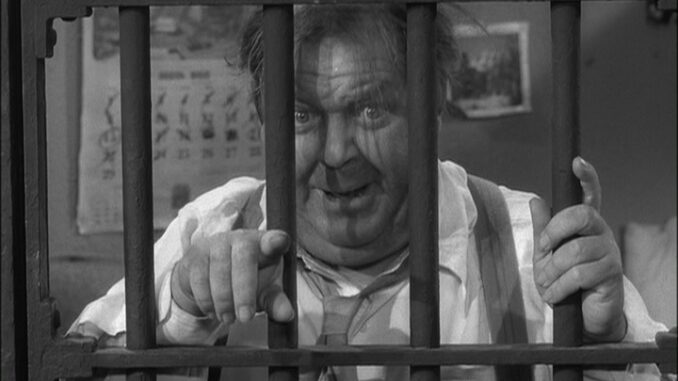
The clanging of the steel door behind him was not the sound of a final judgment, but a familiar, almost soothing thud. Otis exhaled, a long, slow breath that carried with it the last remnants of the city’s frantic hum – the wail of distant sirens, the incessant chatter of passersby, the angry blare of a taxi horn. Here, in the sterile, echoing corridor of the county jail, a different kind of quiet settled. It was a predictable quiet, punctuated only by the jingle of keys, the low murmur of correctional officers, and the occasional, muffled shout from another cell block. This was not a punishment for Otis; it was a perverse, self-inflicted sanctuary. Otis, in jail again, had chosen the bars over the chaos outside.
Outside, life was a relentless tide, threatening to pull Otis under with every churning wave. The chaos wasn't just the noise; it was the suffocating burden of choice, the crushing weight of responsibility he was ill-equipped to carry. It was the rent notice taped to a peeling door, the insistent ringing of a phone he couldn't afford to answer, the hollow gnawing of an empty stomach, the judgmental glances of strangers on the street. It was the fleeting, desperate attempts at sobriety that dissolved like sugar in water, the broken promises to family, the shame that clung to him like cheap cologne. Freedom, for Otis, was a heavy cloak woven from anxieties: the freedom to fail, the freedom to starve, the freedom to be utterly, terrifyingly alone. He was a small boat without a rudder, adrift in an ocean of demands, and the shore, for him, was always just out of reach.
Inside, the world contracted to a manageable size. The four grey walls of his cell, the cot bolted to the floor, the stainless-steel toilet – these were his boundaries, inviolable and clear. There were no decisions to make beyond which side of the cot to lie on, or whether to read the faded magazine left by a previous occupant. Meals arrived on a schedule, meager but consistent. A thin blanket and a hard pillow promised a predictable rest. The constant hum of the fluorescent lights, the bland, institutional smell of disinfectant, even the distant shouts of other inmates, contributed to a monotonous symphony that, paradoxically, brought him peace. The outside world, with its thousand shifting textures and unpredictable demands, was distilled into a simple, inescapable routine. He was no longer battling the current; he was merely floating, contained.
This wasn't to say Otis enjoyed incarceration. There was no joy in the deprivation, the lack of true privacy, the subtle dehumanization of the system. But there was a stark, undeniable relief. The bars, for Otis, were not just physical barriers; they were psychological ones, shielding him from the very real and immediate threats of his own unmanaged freedom. He didn't have to seek out the next meal, strategize how to avoid old debts, or muster the willpower to resist the siren call of addiction. All the external pressures that fractured his mind and soul were, for a time, neutralized. He was stripped bare, but also unburdened. In this strange, inverted logic, the absence of choice became the ultimate freedom – freedom from the crushing weight of making the wrong ones.
So, when the judge had pronounced the sentence, a familiar cadence of numbers and legal jargon, Otis had felt not despair, but a quiet resignation, almost a sigh of relief. He knew the drill. He knew the cell number, the faces of some of the guards, the unwritten rules of the yard. This wasn't home, but it was known. It was predictable. It was safe, in its own bleak way. The chaos outside, a swirling maelstrom of unmet expectations and self-destructive impulses, was momentarily quelled. Otis had not sought out jail, perhaps, but neither had he fought against it. He had merely allowed the familiar current to carry him back to the only harbor he seemed capable of finding, a stark reminder that for some, the greatest freedom lies in the surrender of choice, and the harshest chains are often forged not by a system, but by the unbound, unmanageable wildness of life itself.